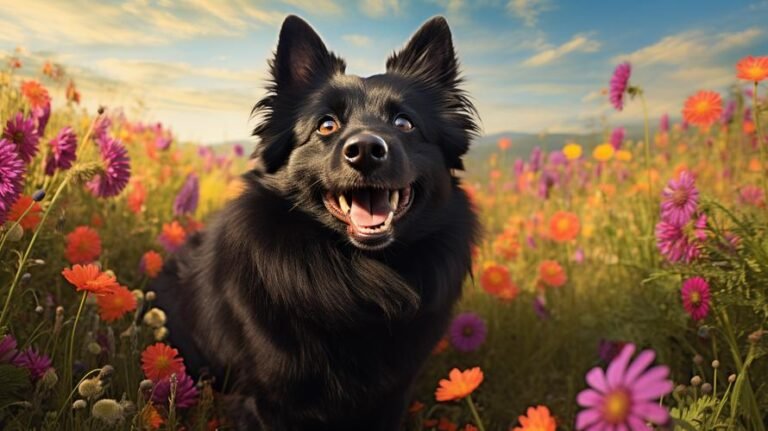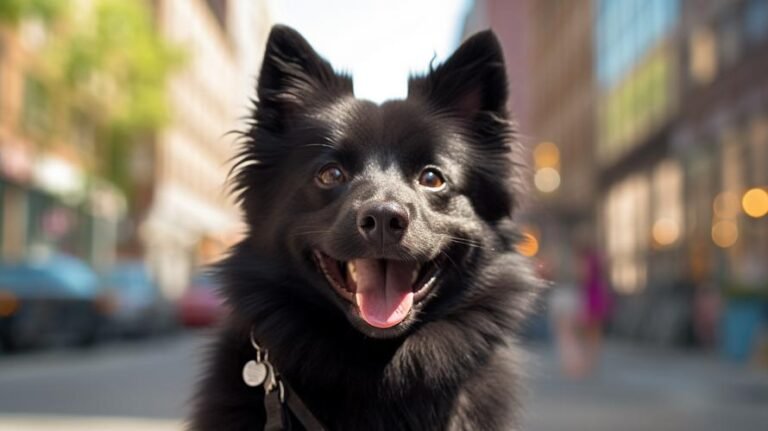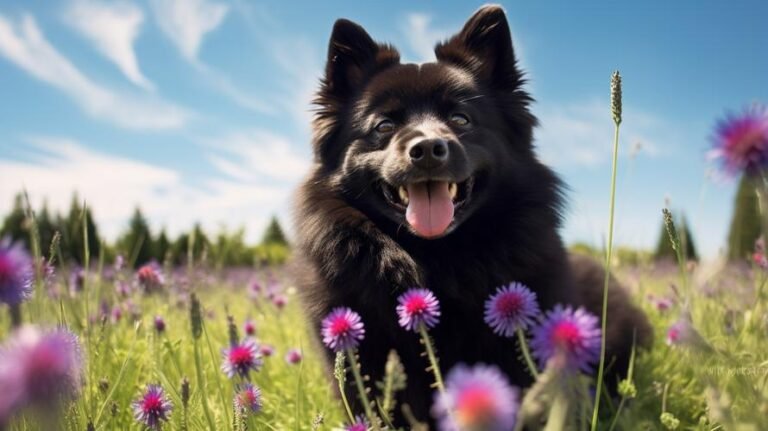Schipperkes. Love them or hate them, these energetic little misfits have an uncanny ability to steal your heart with their sharp wit, superior intelligence, jet black coats and boundless energy.
Wait, you’ve never heard about the Schipperke? Well, let’s correct that right now.
The Schipperke is a Belgian breed that was originally used as a guard dog for barges and to keep away vermin. Surprisingly, the name ‘Schipperke’ actually translates to ‘little boatman’. Don’t let their small size fool you; these dogs are as energetic as they are cunning, and they are fiercely protective.
But does that make them difficult? Well, that’s a topic that’s been debated by dog enthusiasts worldwide. It will actually all depend on how you perceive ‘difficult’. Some synonymous attributes to a difficult dog could be willful, energetic, or assertive, characteristics that are often ascribed to the Schipperke. But let’s explore this further and let you decide.
It is undeniable that the Schipperke is a headstrong breed. With a mind of their own, they don’t always follow instructions the way you’d like them to. But, here’s the thing – it’s not because they are incapable. In fact, it’s quite the opposite! Schipperkes are said to be among the most intelligent dog breeds. They’re independent, and that can sometimes be mistaken for disobedience. But, with proper training, a Schipperke can excel at agility, obedience, and even herding trials.
Schipperkes are also known for being phenomenally high-energy dogs. It’s not uncommon to spot a Schipperke running around in circles just for the fun of it. They have a curiosity that might surpass that of a nifty cat and are always up for an adventure. For some, this might be challenging, especially if you are used to a more laid-back pet. If you’re not into active lifestyle, then a Schipperke might indeed seem like a difficult dog.
Additionally, it’s crucial to note that Schipperkes are tireless barkers. These dogs were bred to raise the alarm, and they take this job seriously. From an approaching delivery person to a squirrel darting across the yard, a Schipperke has a comment about everything. If endless chatter and barking bother you, this might be a formidable trait.
All these traits point towards the Schipperke being a challenging breed, right? Occasionally, yes, they can be. Then why are so many households smitten with this particular dog breed?
The reasons are more nuanced than one might think. You cannot talk about the Schipperke without mentioning its fiercely loyal nature. A Schipperke will stand by you through thick and thin. They can be reserved or cautious around strangers, but once you are accepted as a friend, you can count on their unswerving loyalty. This quality is often prized over the certain demands that the breed might have.
Another element that emerges is their intelligence. Their seemingly disobedient demeanor is a manifestation of their sharp wit. If the Schipperke’s intelligence is harnessed properly, they can pick up commands in record time. With patient training, these agile creatures can perform breathtaking tricks and obey orders better than many dog breeds.
Also, Schipperkes thrive on love and attention. If you’re the type of pet owner who enjoys having an energetic and bright companion by your side, a Schipperke can be a delight to have around. Their warm and friendly nature towards their people is truly charming, making them perfect family dogs.
In conclusion, whether Schipperkes are difficult or not largely depends on your perspective. Yes, they can be stubborn, curious, and high energy, but they are also fiercely loyal, intelligent and entertaining. Understanding and meeting their unique needs will help foster a better relationship with your Schipperke, compensating for any ‘difficult’ traits they might have.
So, if you are willing to embrace their quirks and put in the time and effort to train them properly, a Schipperke could certainly make a wonderful addition to your family. And remember, while they might be ‘difficult’, they are also very rewarding. After all, life is all about accepting challenges, growing, and appreciating the nuances, even in our four-legged friends.



